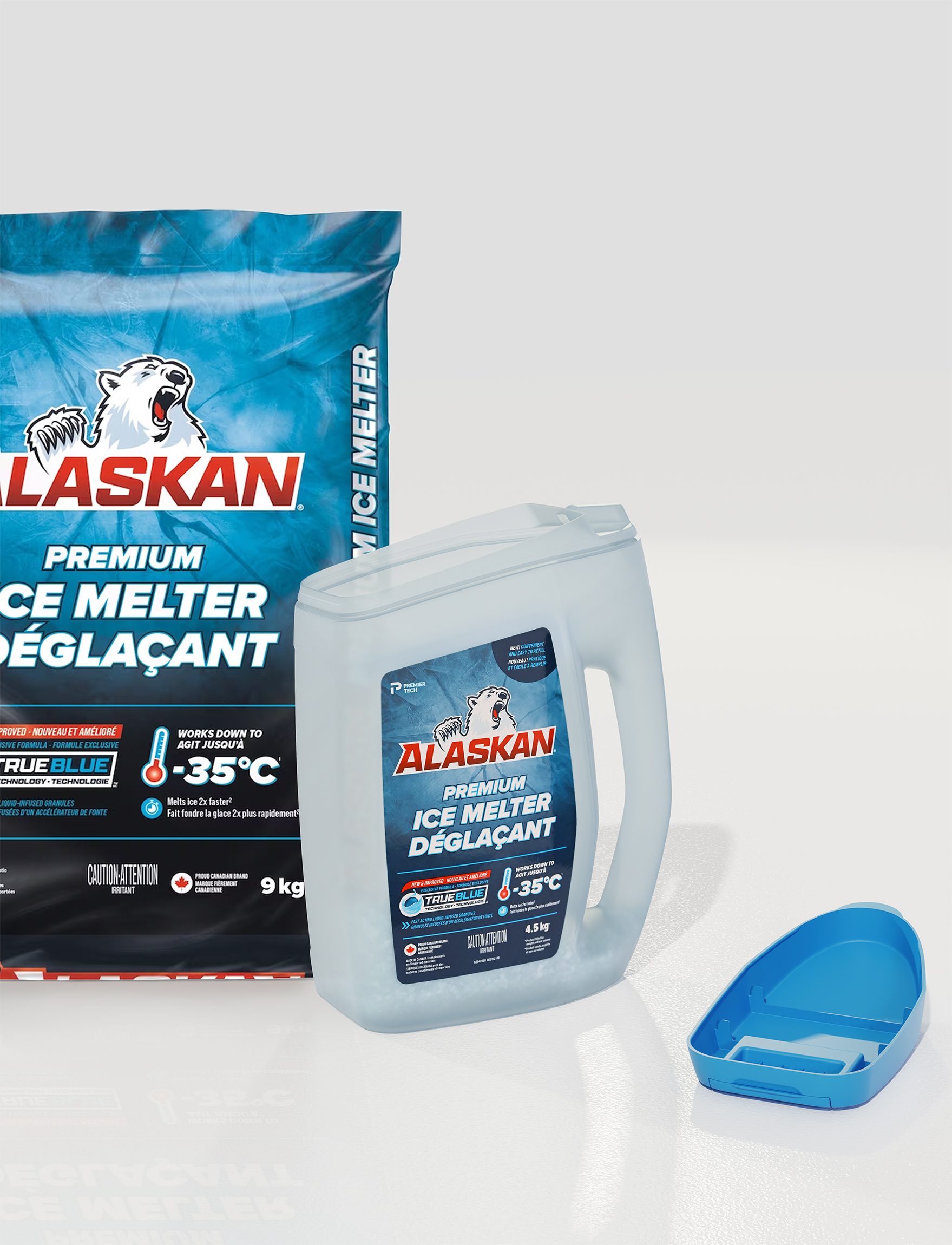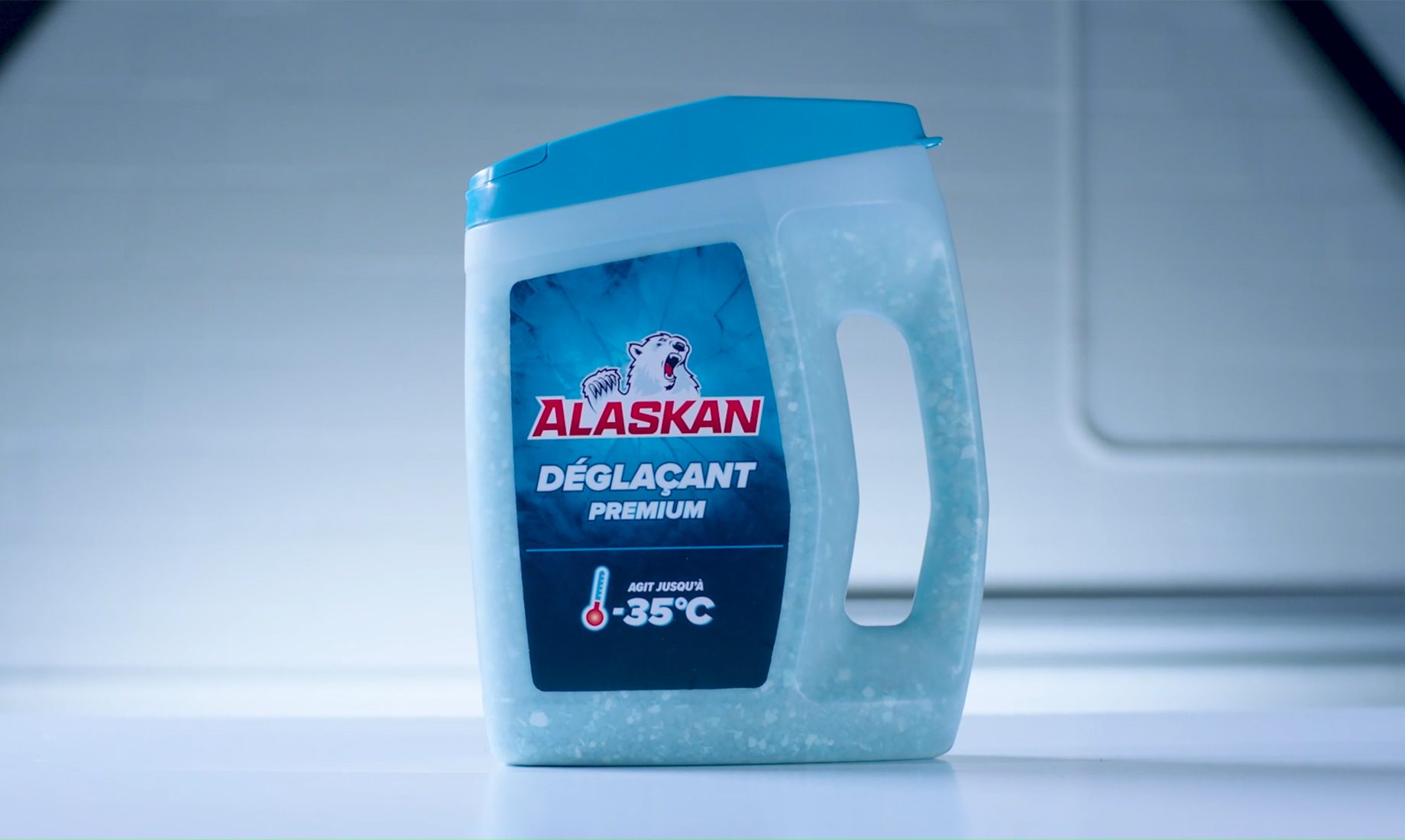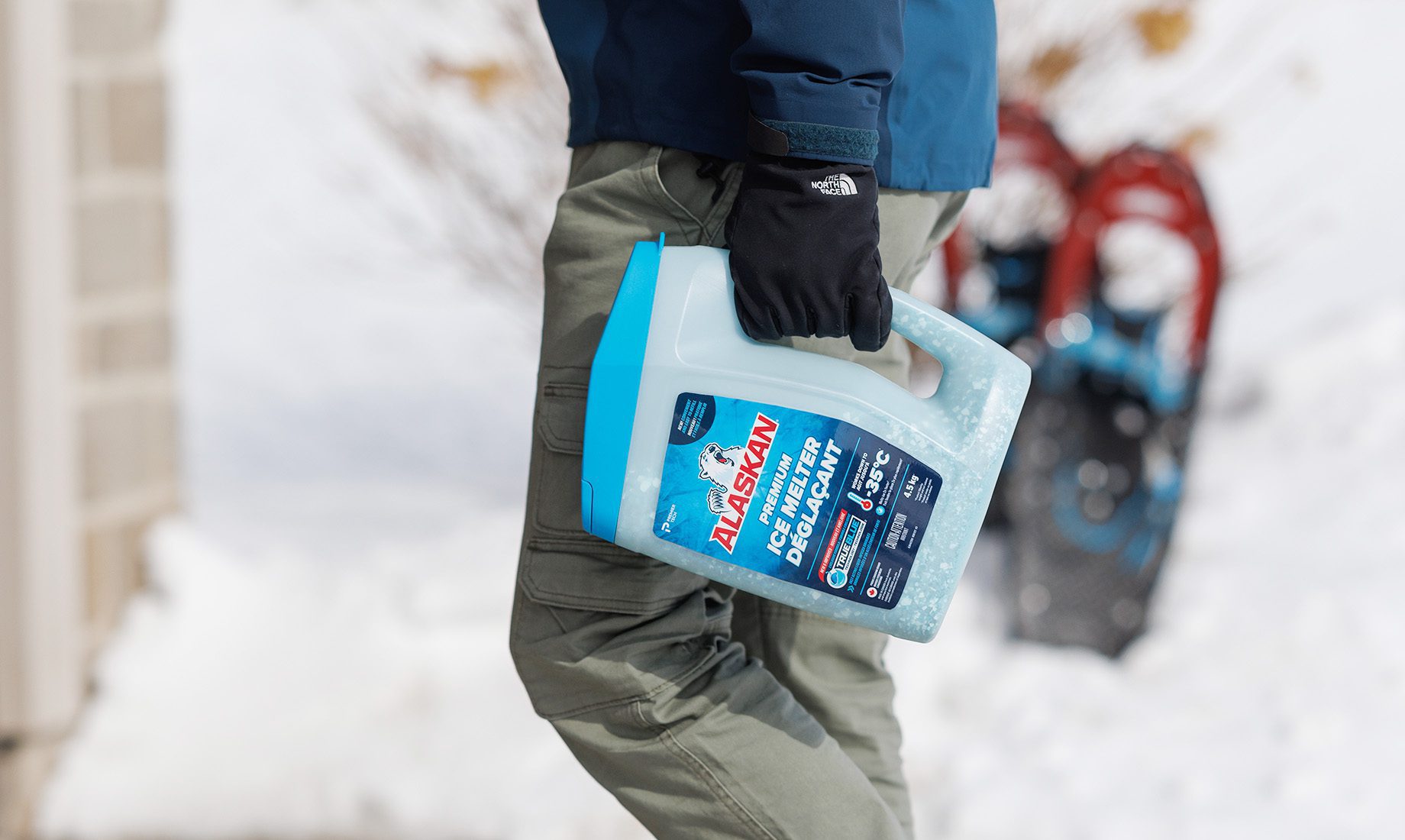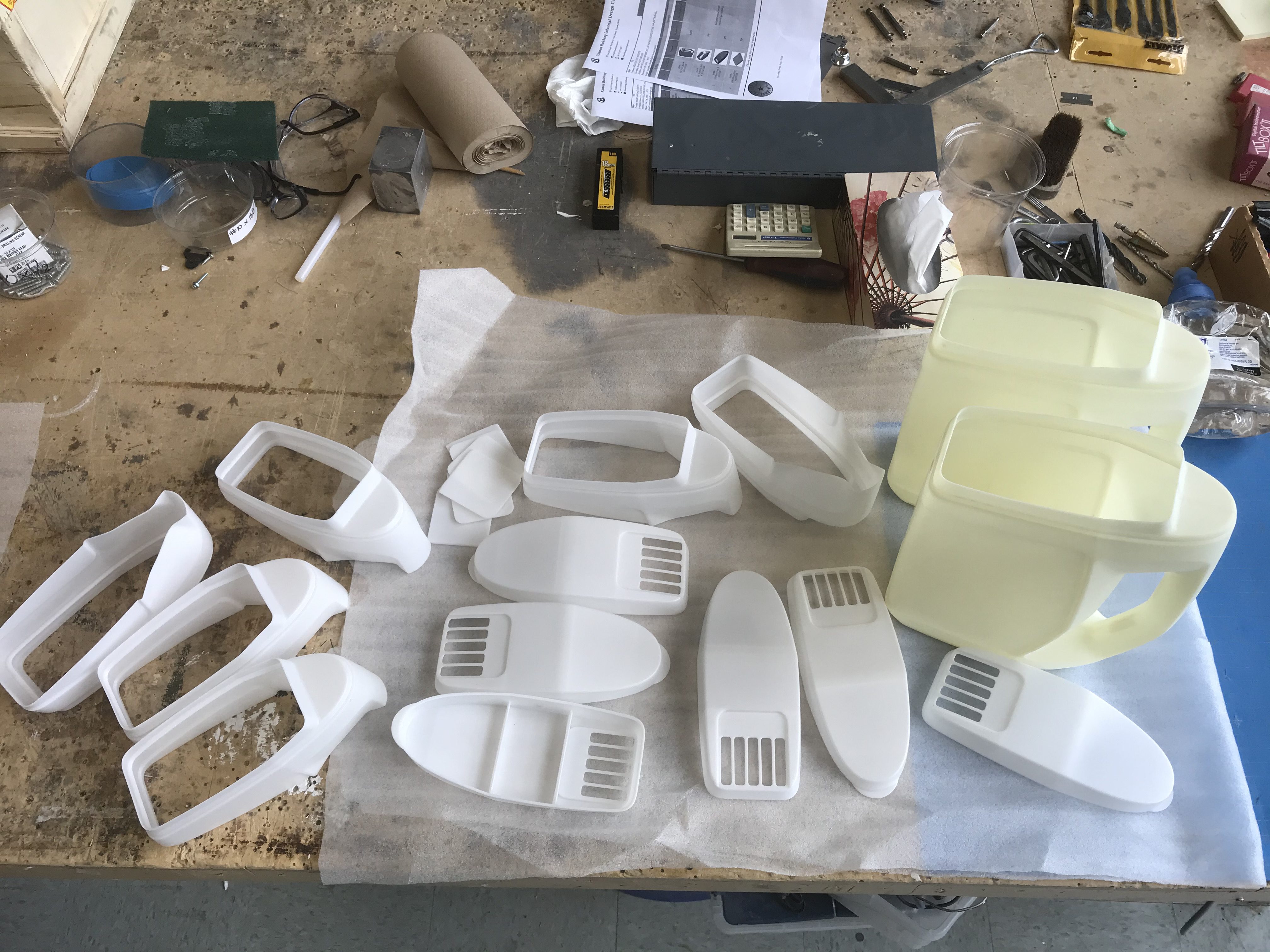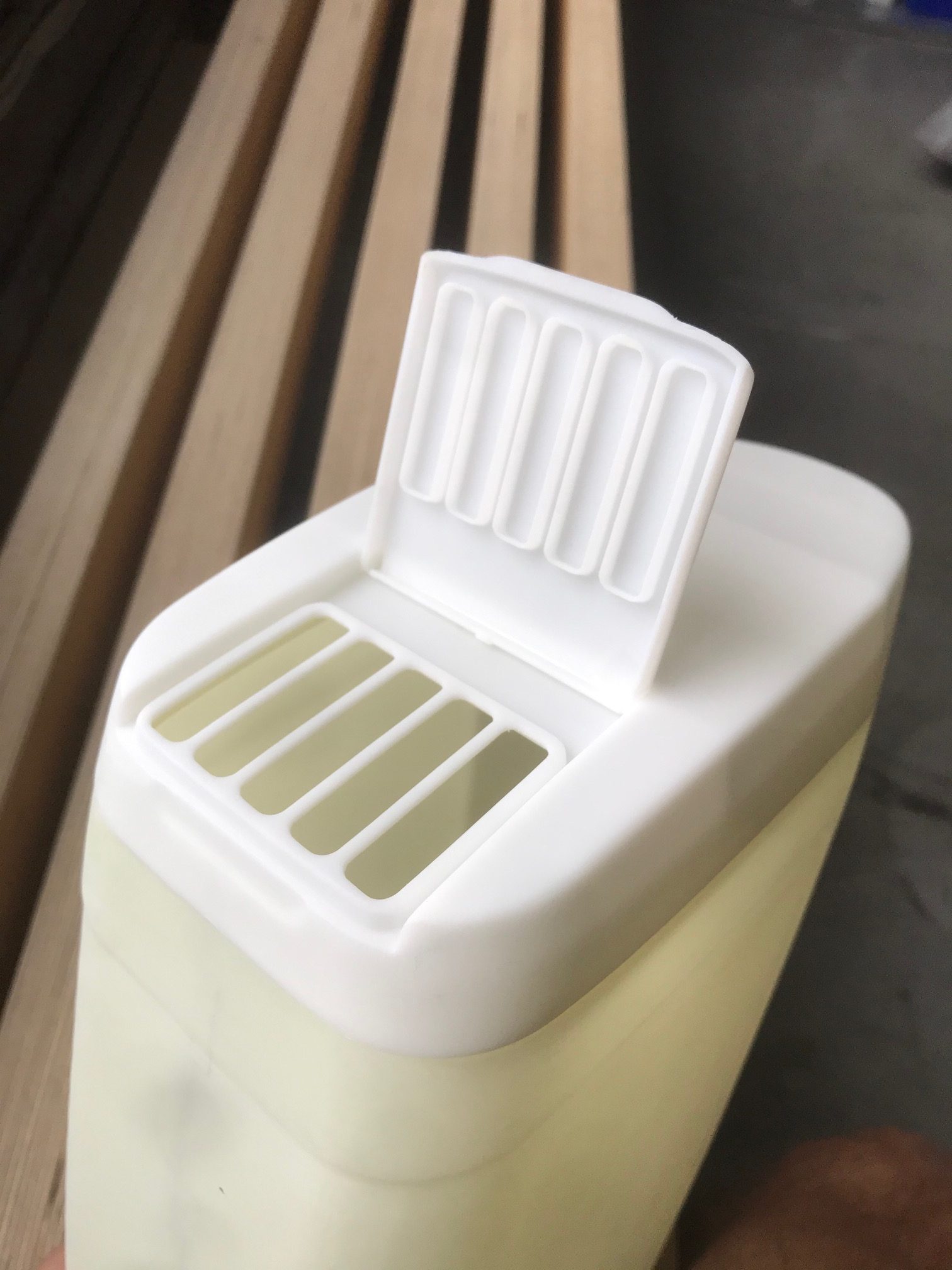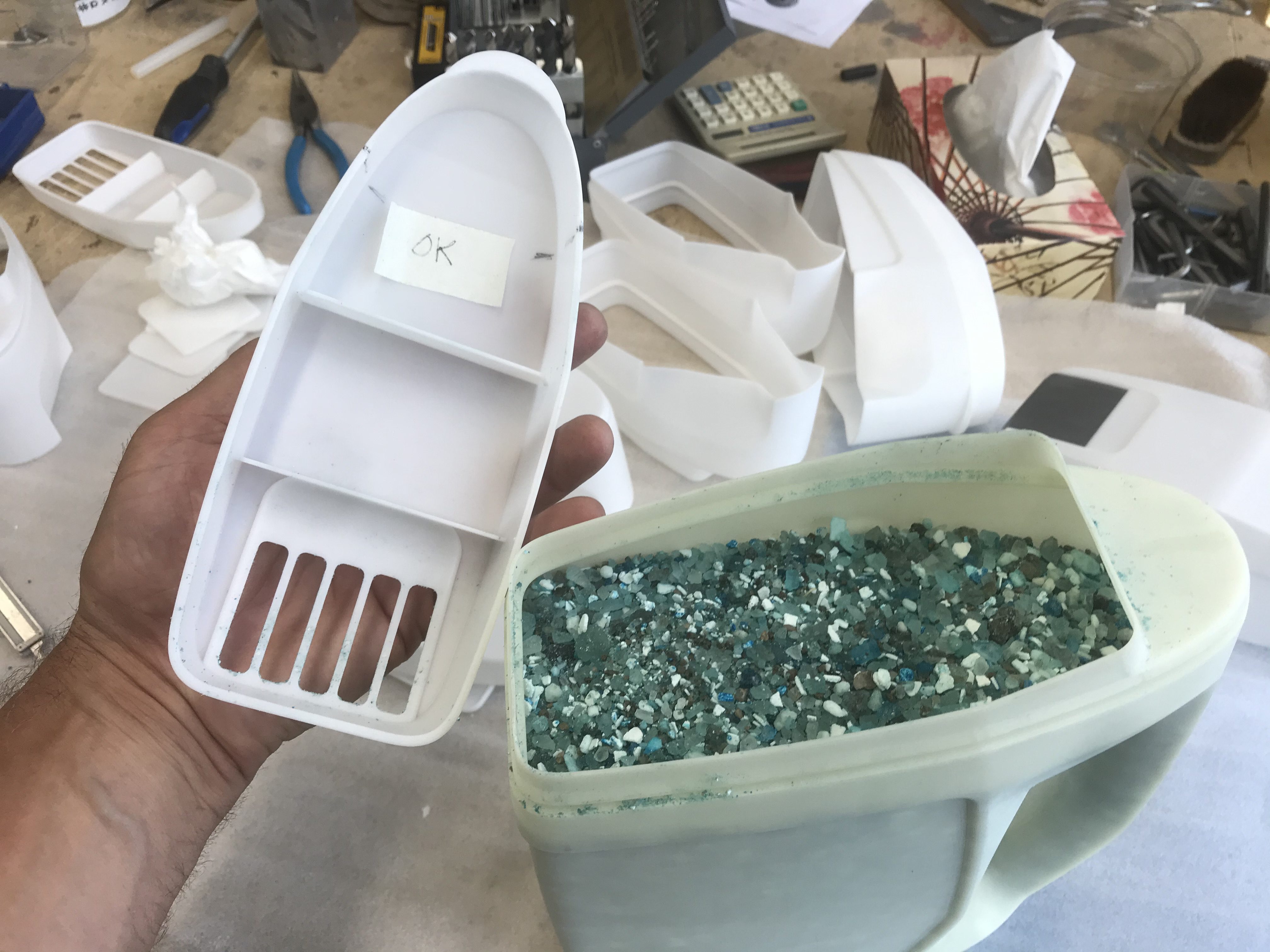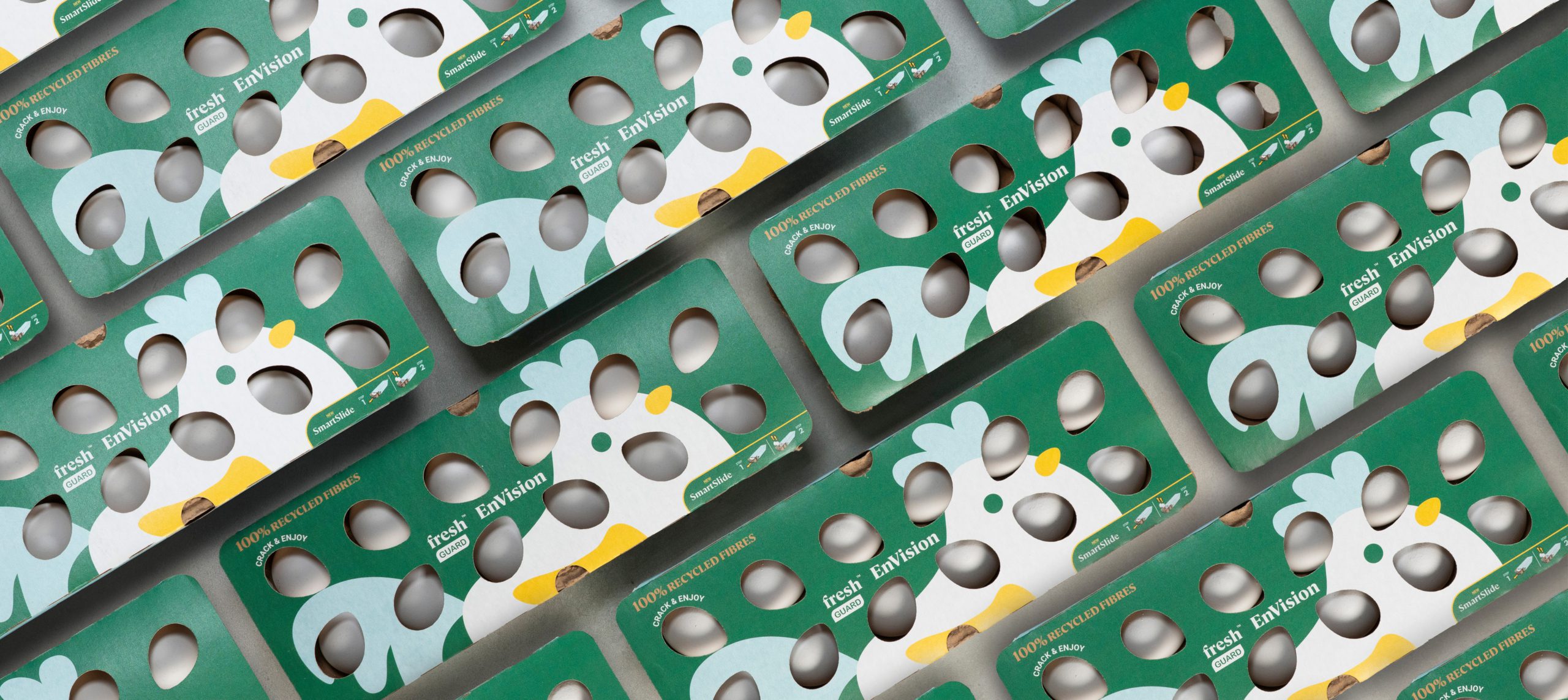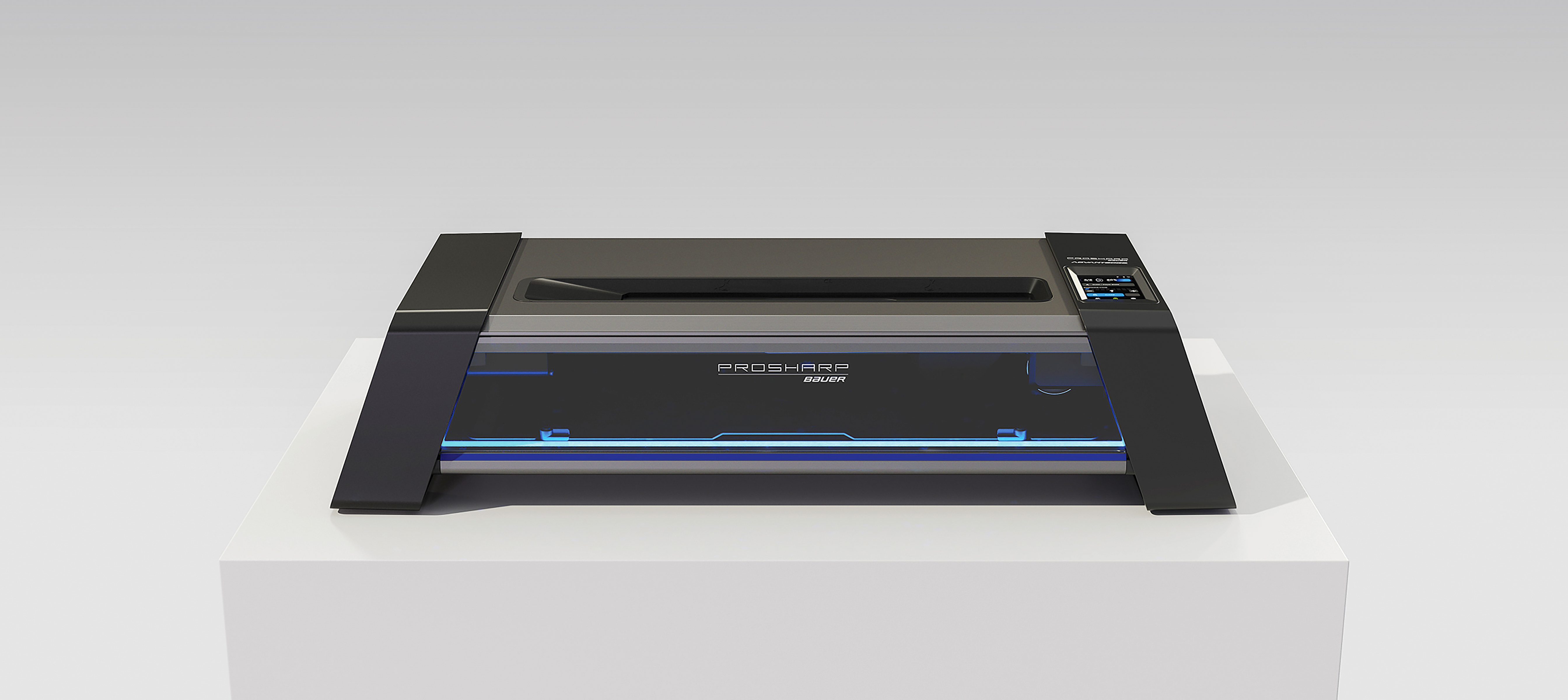Reusable container for Alaskan® ice melter
year
2021
client
Premier Tech
Services
Industrial design
Ecodesign
Mechanical engineering
Prototyping
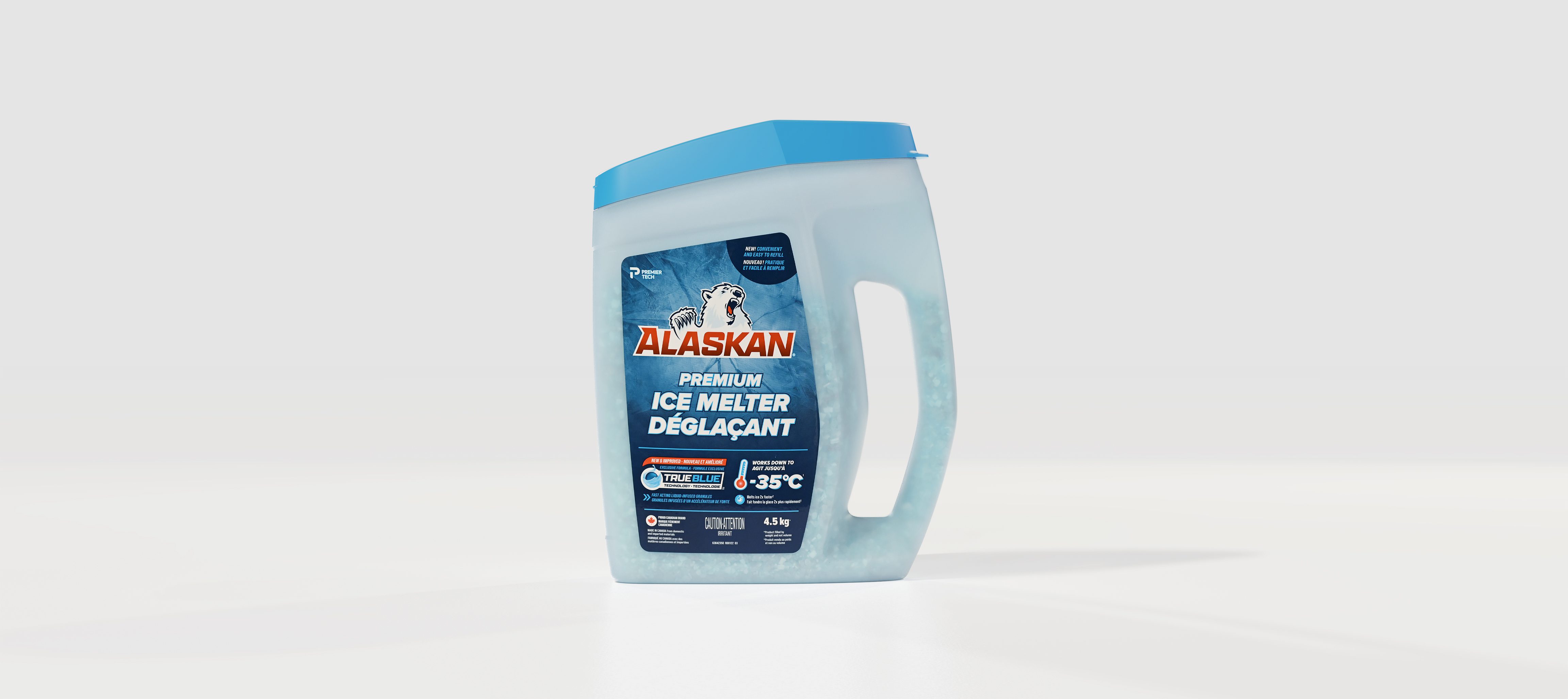
Reusable container for Alaskan® ice melter
Ergonomically optimized, reusable, easy-to-fill packaging for ice melting granules
In collaboration with Alto, Premier Tech redefines its packaging for Alaskan® ice melter, creating a reusable container that is practical to use, particularly for filling. The new, sturdy, single-material packaging, with the exception of the label, includes an improved lid and an overall shape that enhances the customer’s spreading experience.
This project, which has been very well received by customers, also enables the optimization of secondary and tertiary packaging. It also promotes eco-design through various consumer education strategies, for example by communicating the relationship between the reusable container and refill bags.
Ergonomics and engineering
The new design is the result of an ingenious solution to a number of challenges.
The improved ergonomics of the handle make it easier to spread the product according to the quantity remaining inside the container. As well as facilitating handling, this also contributes to a reduction in product losses during use.
In addition, greater attention to stacking optimization helps to meet durability and strength objectives.
Finally, the new overall shape even enhances in-store visibility, influencing consumers towards a more eco-responsible choice.
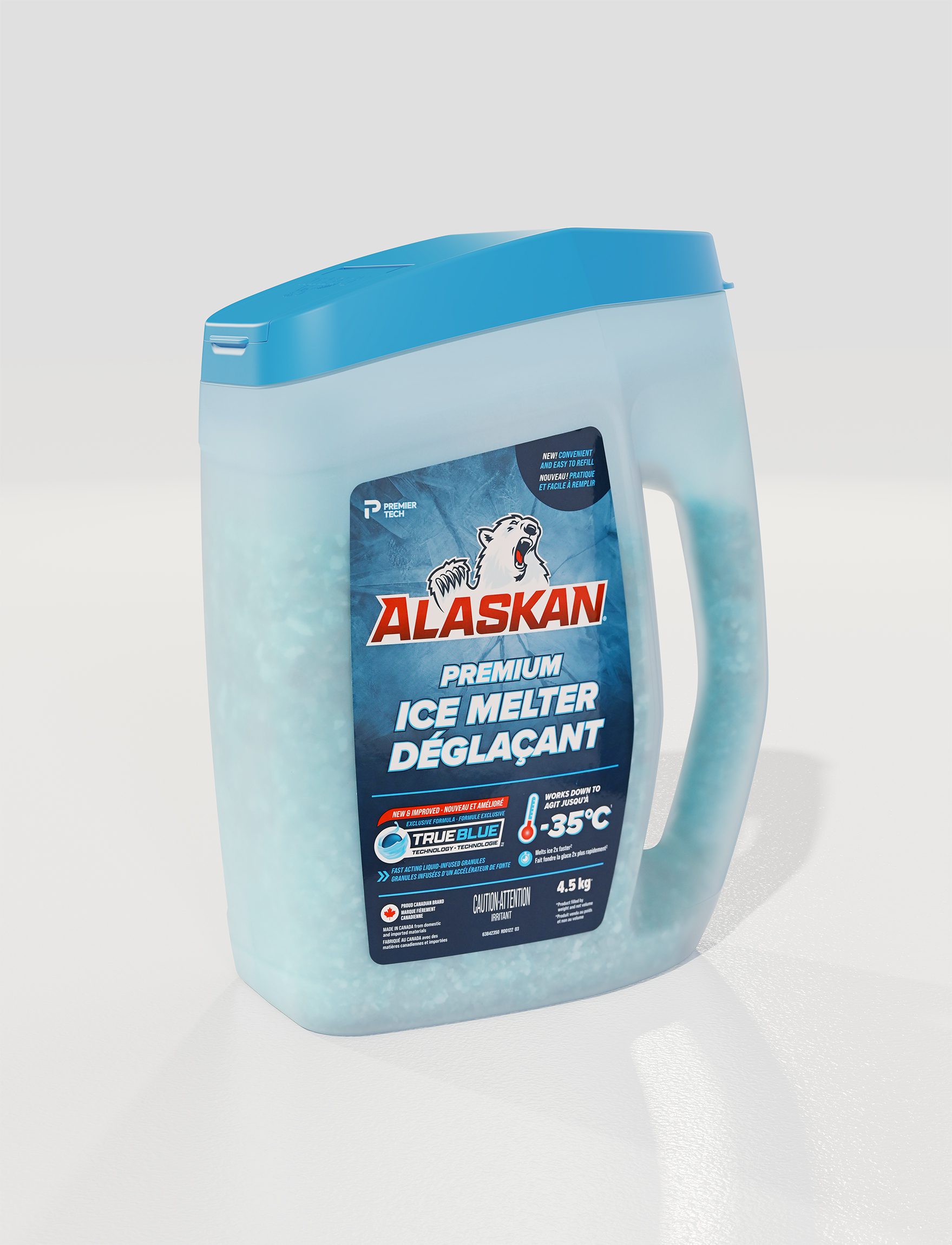
Ecoresponsibility
Alaskan® ice melter’s new packaging illustrates, through a number of factors, an influential commitment to eco-responsibility.
The now reusable container, made from locally sourced parts, encourages refilling. Instructions on the refill bag and container help to educate consumers about environmental responsibility.
The transition to a lid made from high-density polyethylene (HDPE), a material offering more extensive recycling options than polypropylene, makes the product monomaterial, with the exception of the label.
The optimization of cans, the secondary packaging, also makes it possible to increase the number of products per truck by 25%, thus reducing transport-related CO2 emissions.
